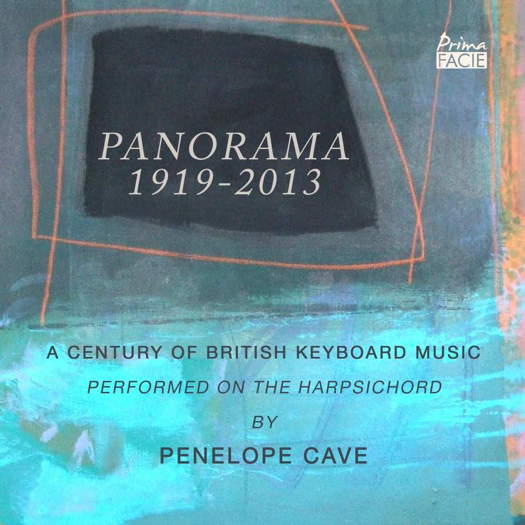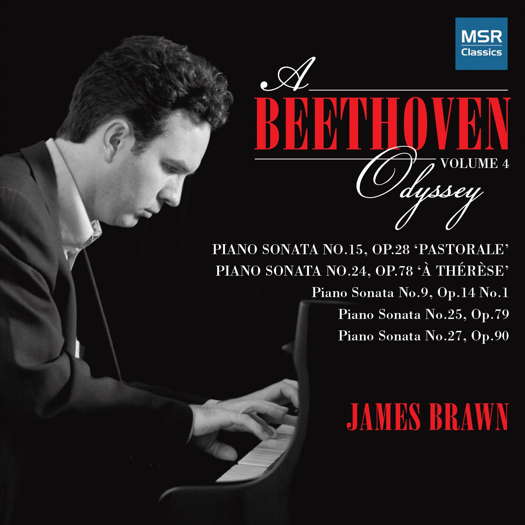 SPONSORED: CD Spotlight. Pure Magic - James Brawn's continued Beethoven Odyssey, awaited by Andrew Schartmann.
SPONSORED: CD Spotlight. Pure Magic - James Brawn's continued Beethoven Odyssey, awaited by Andrew Schartmann.
All sponsored features >>
One of the principal reasons for the existence of this column is to draw attention to, what I consider, exceptional music which is still awaiting commercial recording or at least a new recording for what has been a considerable amount of time. Some of the music that fits this description is music that I have never actually heard which would seem to make my claims for labelling it 'exceptional' utterly groundless. This is true up to a point, but based on similar works in a composer's catalogue or solely due to the talent that a composer has demonstrated in other genres, I believe there are still valid grounds - not least Keats' famous and apposite line from Ode on a Grecian Urn - for at least hoping that the exceptional nature of this hitherto unheard music is at least possible if not probable.
In previous articles here I have given examples of such unheard music; usually these have been minor leaks in need of repair in the good ship Oblivion but occasionally they have been cavernous Titanic-like holes which demand more drastic intervention if they are not to see us eternally foundered at the bottom of the ocean of oblivion. Today's focus is firmly on the latter category of sweeter melodies.
1: Tauno Marttinen (1912-2008):
The Symphonies
This year sees the fiftieth birthday of BIS Records and the eightieth of its Swedish founder and guiding spirit Robert von Bahr. I am sure I am not alone when I say that it has been thanks to the various musicians and recording technicians that have worked with BIS over the last half century that many of my most cherished musical discoveries have been made. Not only am I indebted to BIS for many world class recordings of music never previously recorded but also for their tendency or policy to record complete cycles of works; something which I think is invaluable for any listener to get a fair and true impression of any composer.
On that note, I was delighted to discover a BIS CD many years ago of a hitherto unknown - to me - Finnish composer named Tauno Marttinen. My delight turned to joy when it transpired that Marttinen was a composer whose style and sound struck a deep chord with me, a sensation only heightened by the little further music I managed to hear by him. It is music filled with a sense of spirit and a search for meaning. As he said himself 'music is an exercise in faith - a faith which has neither name nor form'.
My joy turned feverish when I realised that the two wonderful symphonies on that BIS CD were part of a cycle of no fewer than ten. However, my febrile excitement was quickly and brutally defenestrated and hurled ingloriously to the gaping gutter below when unlike in the case of so many other symphonists discovered through BIS it became clear that no further Marttinen symphonies were forthcoming and there was seemingly no intention to record a complete cycle. From that day til this I have lived in a state of despondent, mildly despairing limbo hoping for BIS or any record company to do the decent thing and put me out of my Marttinen-symphony-deficient misery.
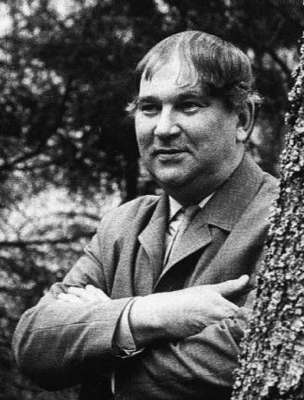
Tauno Marttinen
2: Alexandre Tansman (1897-1986):
The Operas
It says something for the dimensions and richness of the lustrous goldmine that is the lesser known music of the twentieth century that in the eight months I have been regularly writing here and among the seventy or eighty composers I have so far written about I believe I have yet to make any mention of a composer of the calibre of Alexandre Tansman, a composer for whom I have always had a strong attraction and deep affection from the moment his music entered my life.
Like Marttinen, Tansman lived a long life and was relatively prolific throughout those years but unlike Marttinen he has had the luck or honour to have had a huge amount of his music played and - more importantly for what concerns us here - commercially recorded. His symphonies, his string quartets, his music for piano, his much-loved guitar repertoire, and much more besides have all been preserved for posterity.
Among this embarras de richesse there is one glaringly obvious and frustrating omission: his operas. Tansman composed no less than seven operas, only one of which - Le Serment - as far as I am aware has ever been recorded. Together they run like a backbone through his composing career from the 1920s to the 1970s. For a composer whose music is so naturally dramatic and colourful they beg to be heard. If the idea of hearing these unheard works was not enough to tease us out of thought, the notion is only made more tempting when one learns that one of the operas: Sabbatai Zevi was among the three works of his entire output of which Tansman was particularly proud.
La Nuit kurde, La Toison d'or, Le roi qui jouait fou, Le Serment, Sabbatai Zevi, L'Usignolo di Boboli and George Dandin. What men or gods are these? What maidens loth? What mad pursuit? What struggle to escape? What pipes and timbrels? What wild ecstasy? As I have never been able to hear them I don't know, but were some enlightened record company gracious enough to provide me with the opportunity to do so I would indeed be wildly ecstatic.
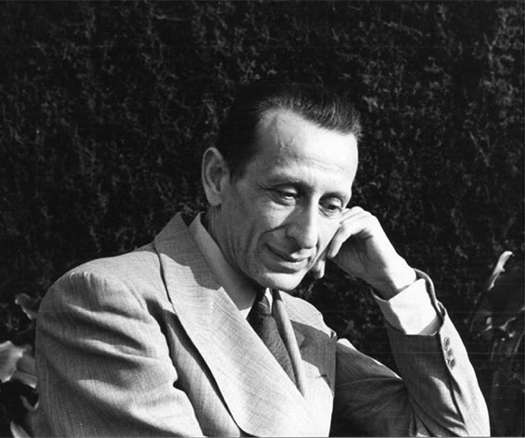
Alexandre Tansman
3: Felix Werder (1922-2012):
Anything and/or Everything
German born composer Felix Werder arrived in Australia as a teenage enemy alien onboard HMT Dunera in 1940 whereupon he was immediately interned. The how and why of this experience is something I can't go into here but it is just one example of the far too many horror stories brought about by the combination of war, nationalism and colonialism. Despite his thorny relationship with Australia and what he called its 'entrenched establishment of mediocracy' almost all of the very few recordings of his music are Australian made.
Anyone who read my article Horses for Courses on Bengt Hambraeus in which I wrote about musical provincialism in the last paragraph won't be surprised when I say that statements from Werner such as 'music is not a soporific for calming neuroses of a decadent bourgeois society' or 'to understand a piece of music we must first ask who paid for it?' can only have me nodding my head. All his life he railed against the idea of music as nothing more than a celebratory expression of the status quo and an embodiment of the bankrupt values of those who benefit from this status quo. Where beauty is truth only as long as it conforms to those in power's accepted objective clichéd idea of beauty and truth is beauty only as long as it doesn't dare express the harrowing, despairing, idiotic, unjust and ugly truth that surrounds us on all sides, especially so for those who don't reap the rewards of the status quo.
I don't think art exists for any reason. Evolution has simply determined that from the foul rag and bone shop of the heart we are somehow compelled and able to construct monuments of unageing intellect and until we destroy ourselves or the one home the universe has gifted us we will continue to do so as an integral, inevitable part of who we are. However one task that arguably art performs better than anything else is to give a voice to the voiceless and enable the screams of those suffering to be heard however much some would like all this to be smothered under a nice expensive Persian rug as it stands as an affront to their idea of beauty or the noble purpose of art.
Felix - his parents named him well - was likewise scathing about the phenomenon of the literally musically illiterate - especially those in positions of power - passing judgement on music and feeling absolutely no compunction about their right and aptitude to do so. All of this would be irrelevant in the context of Felix Werner if his music, or at least what I have heard of it, wasn't so wonderfully fascinating and stimulating. So much so that I would love to hear all of it.
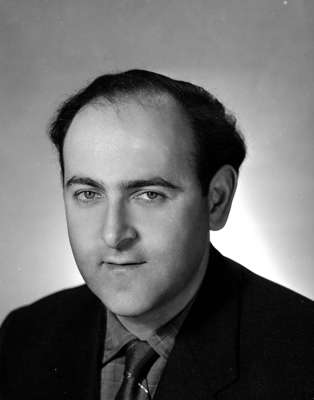
Felix Werder
4: Finn Mortensen (1922-83)
Orchestral Works
After having been so greedy up until now, for my next course I shall ask for something lighter, in size at least if not in quality. Some composers leave behind a relatively small quantity of completed works. This may be due to the fact they simply never had the time to compose more because they died young, it may be because they were extremely meticulous and a perfectionist in everything they wrote or it may be because their ability to compose was of a fickle nature and was not something they were able to turn on and off like a tap. When I discover a composer of this kind that appeals to me I want to know every single opus they composed.
The greatest example that fits this description is Anton Webern but there are many others; Norwegian composer Finn Mortensen being one of the most exceptional. Mortensen was an exact contemporary of Felix Werner but he died almost thirty years before his Australian counterpart. Leaving aside his concertante works, his orchestral output amounts to no more than six pieces of which four have been recorded. Due to the rare power and beauty of those four pieces the desire to hear the remaining two unrecorded pieces; Klangfarger (1962) and Hedda (1975) is borderline obsessive. Simax, LAWO, anyone, you know what to do.
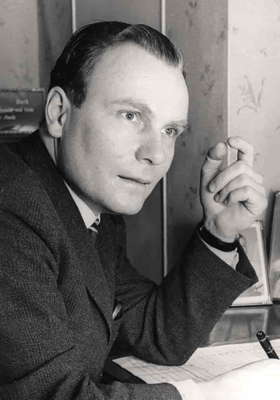
Finn Mortensen
5: Elena Firsova (born 1950):
The String Quartets
I couldn't finish without including a string quartet cycle that is currently, shamefully absent from the commercial catalogue. In Selling like hot cakes ... maybe, hopefully, I drew attention to the fact that the string quartets of Egon Wellesz still remain to be recorded in their entirety but at least as deserving of such treatment is the complete cycle by Elena Firsova. From what I have been able to find out it seems that she has now written no less than fourteen of which very few have been recorded. Having heard these quartets or indeed any music by Firsova it is clear to me that she is one of the very greatest of living composers and that the string quartet is a form of extreme importance to her and a form in which her rare talent thrives.

Elena Firsova
For any composer that has invested so much creative ability in one specific genre over a lifetime - a lifetime lived in two different worlds in Firsova's case - they deserve to be recorded, heard and treasured in their entirety.
Copyright © 2 April 2023
Robert McCarney,
León, Spain



